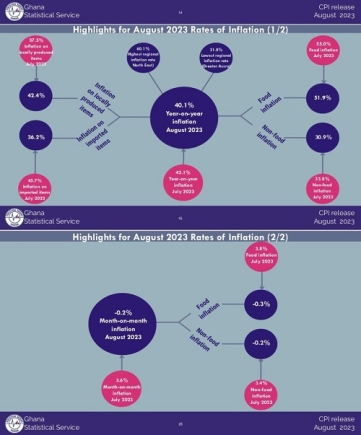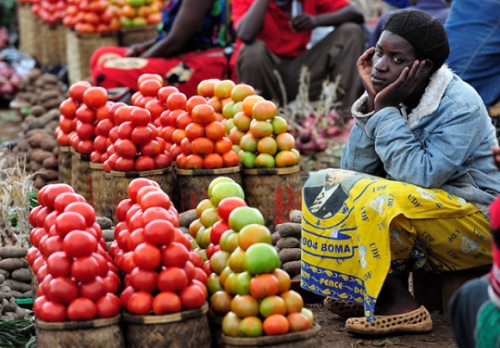Ghana's inflation rate took an unforeseen dip in August, marking its lowest point in 10 months.
According to Government Statistician Professor Samuel Kobina Annim, annual inflation decelerated from 43.1% in July to 40.1% in August. This represents the most gradual rate of change since last October.
Prof. Annim attributed the primary cause of this deceleration to food prices. Food inflation saw a reduction from 55% in July to 51.9% in August, while non-food price growth decreased from 33.8% to 30.9%.
Moreover, for the first time this year, inflation for imported goods registered a lower rate compared to locally produced items. Locally produced items recorded an inflation rate of 42.4%, while imported items had an inflation rate of 36.2%.

Prof Annim noted that while the decline in inflation is positive news, it was too early to determine if this represents a sustained trend.
The inflation rate serves as a gauge for the pace at which prices are escalating. A high inflation rate implies a diminishing purchasing power for individuals, as they find themselves paying more for the same goods and services.
